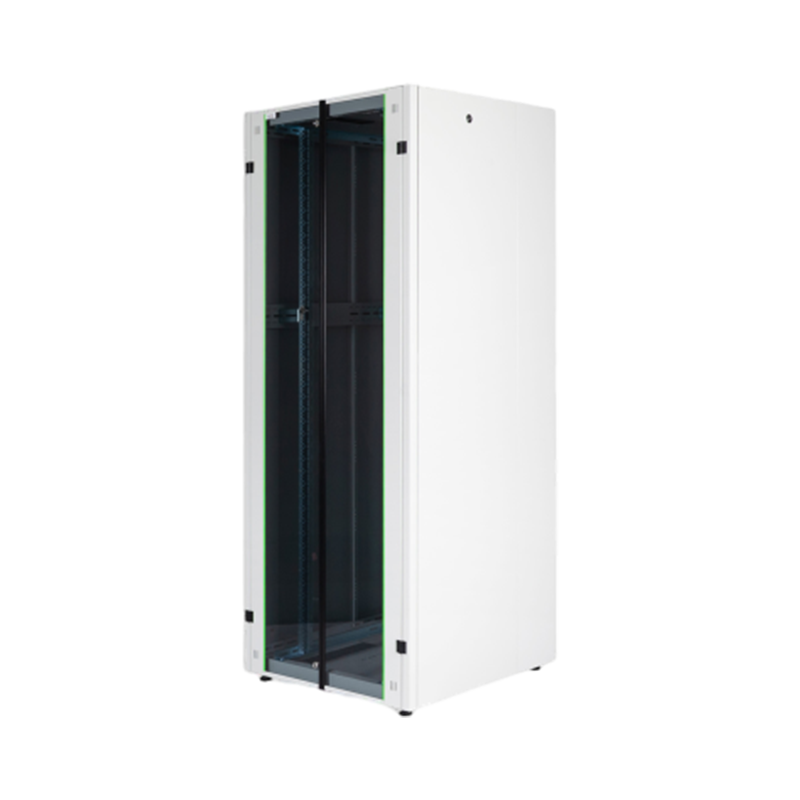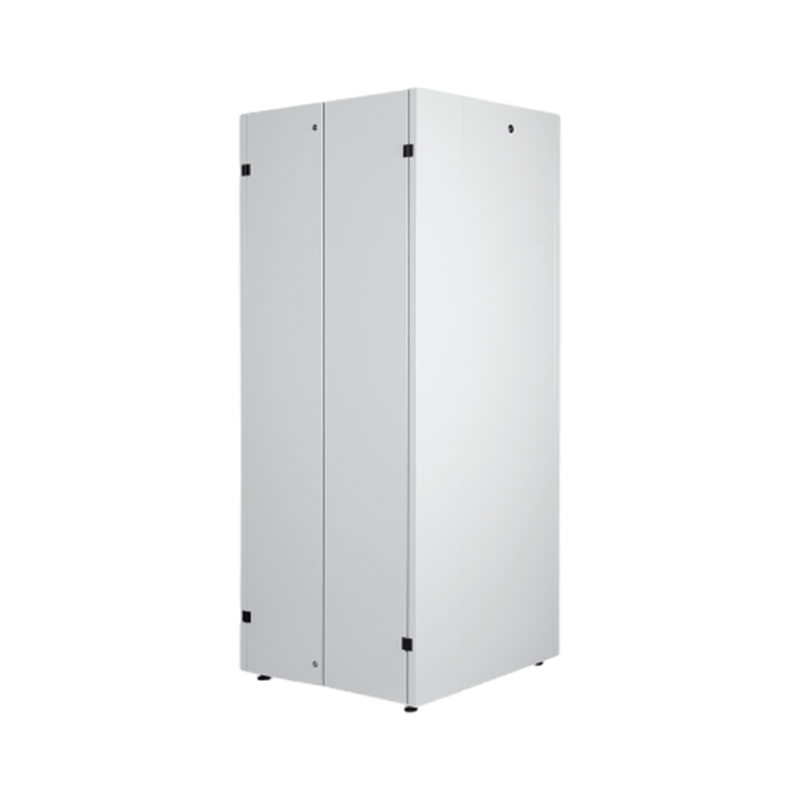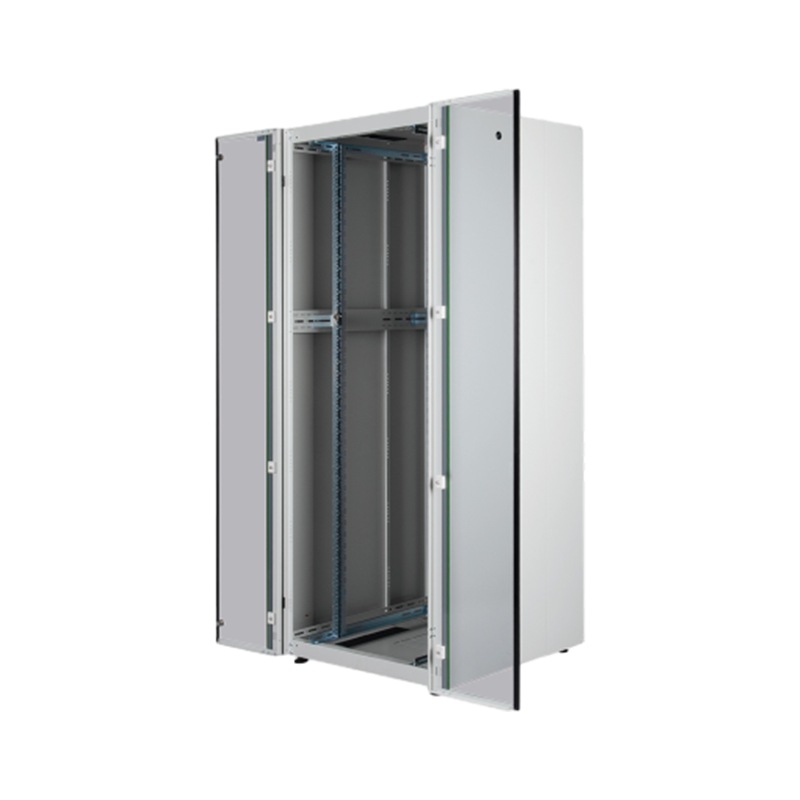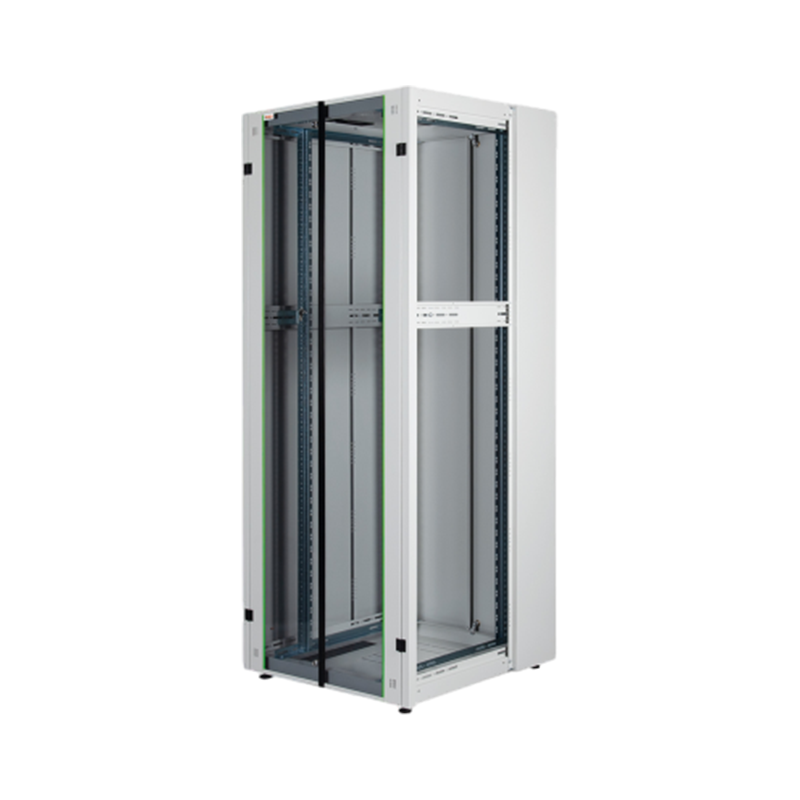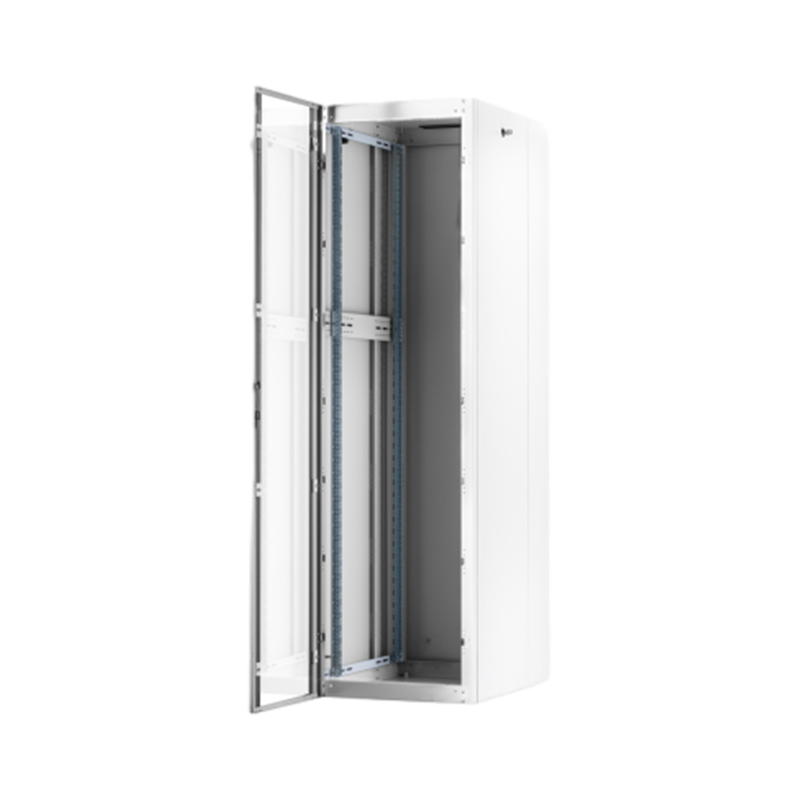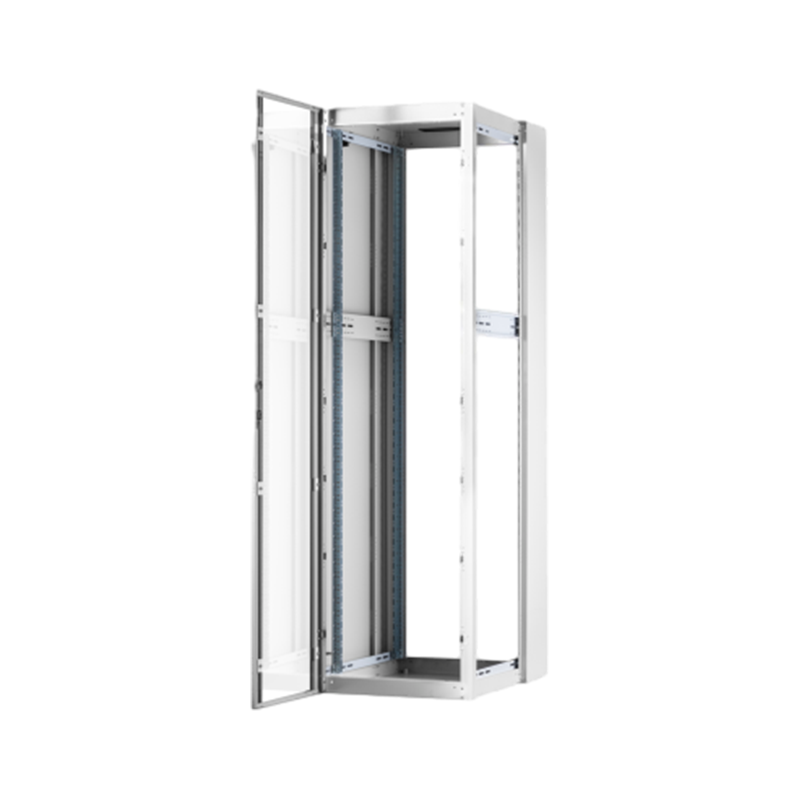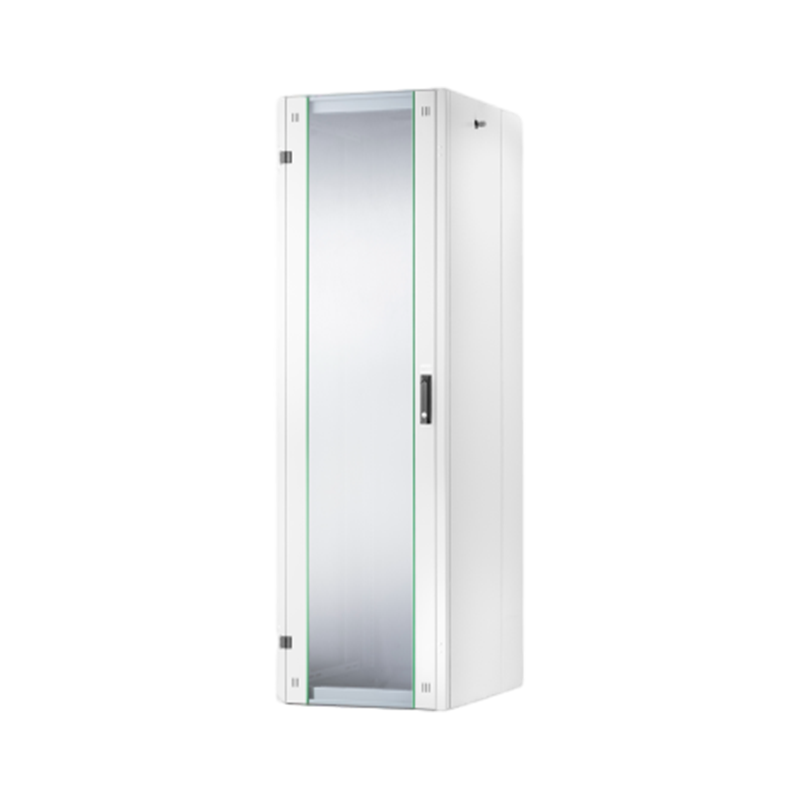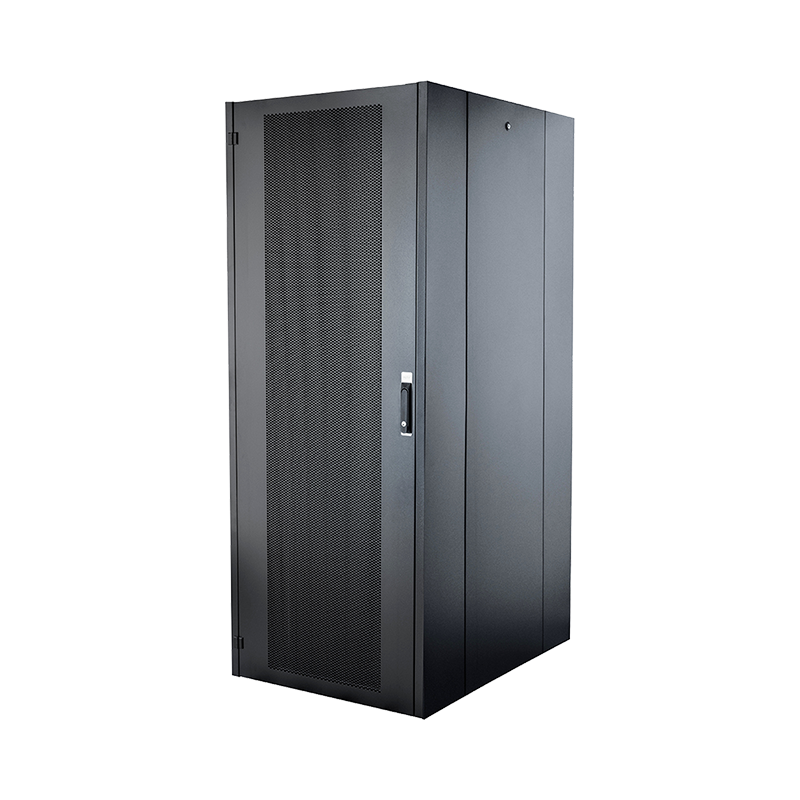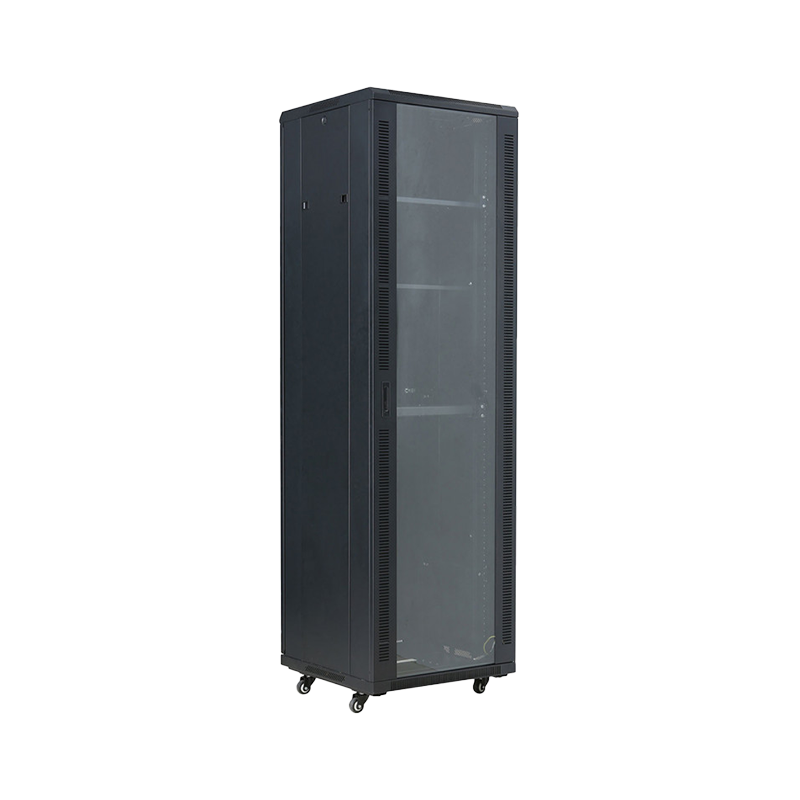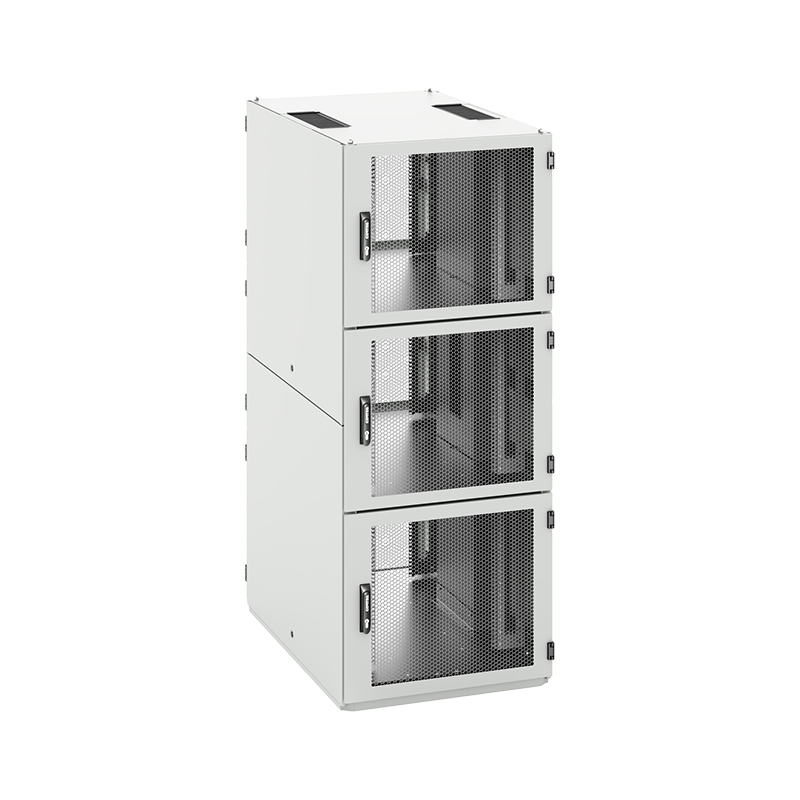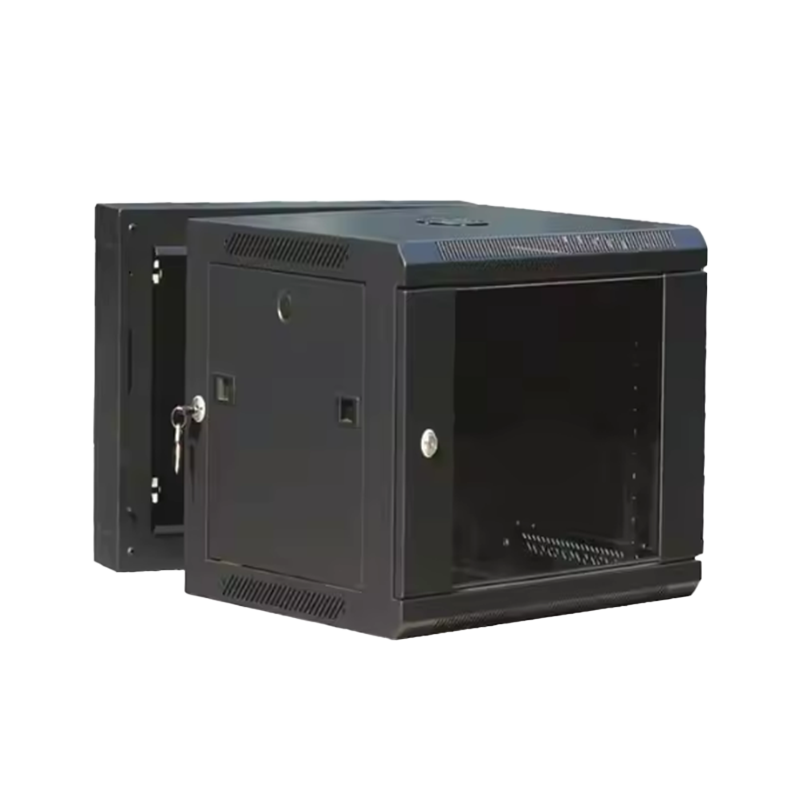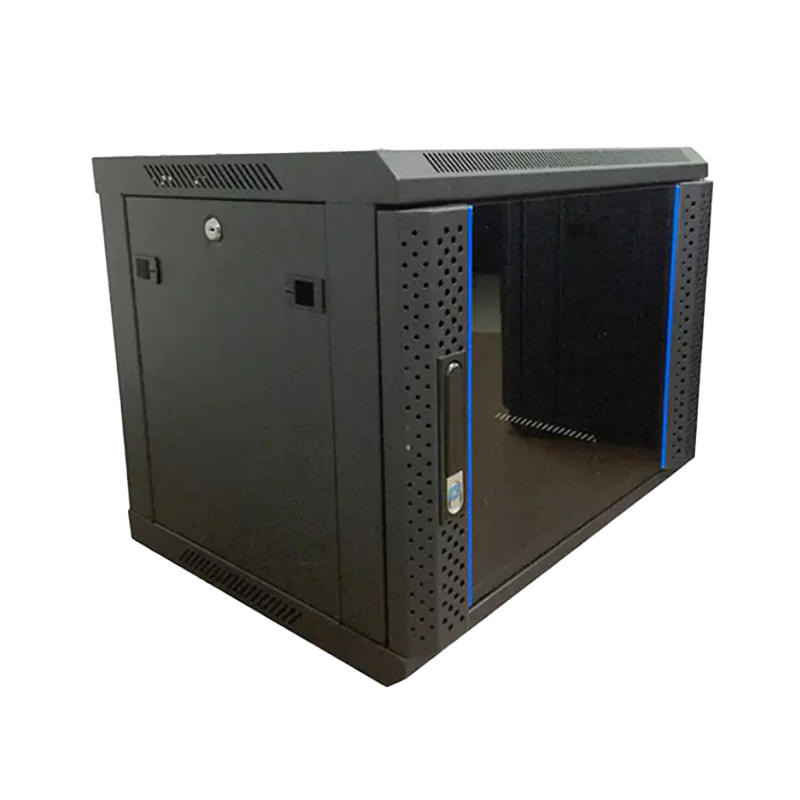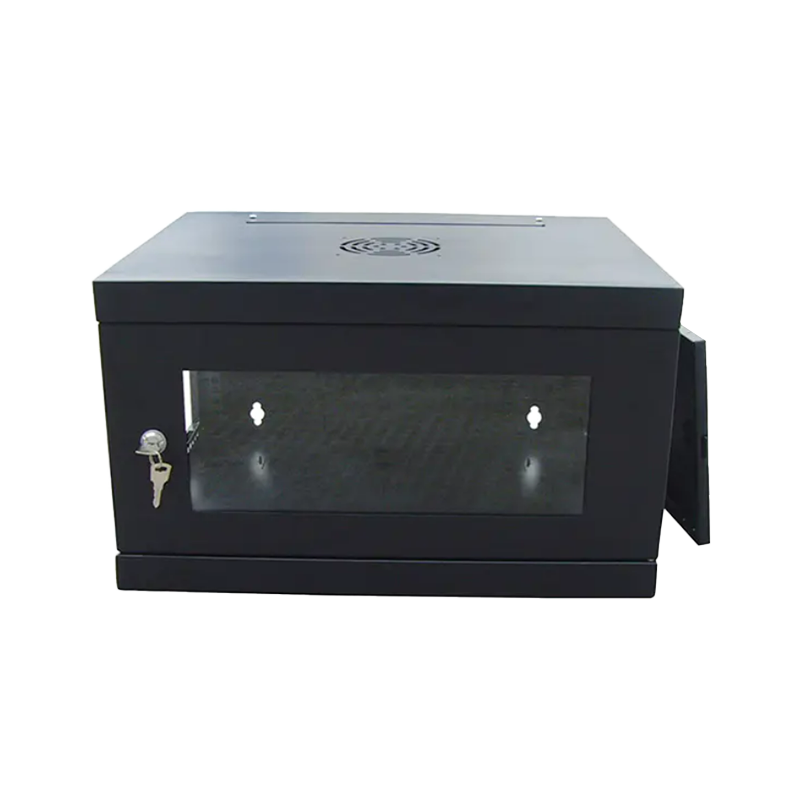With the rapid development of information technology, the demand for data centers and network equipment continues to grow. As the infrastructure for storing and supporting these equipment, the importance of network cabinets is self-evident. Among the many network cabinets, the 19" colored glass door network cabinet occupies a place in the market with its unique material and production technology.
Metal frame: The main frame of the 19" colored glass door network cabinet is usually made of high-quality cold-rolled steel plates or aluminum alloy materials. These materials have the characteristics of high strength, corrosion resistance, wear resistance, etc., which can ensure that the cabinet remains stable during long-term use. structure and performance. At the same time, the metal frame can also provide good electromagnetic shielding effect to protect the internal equipment from external electromagnetic interference.
Colored glass door: Unlike traditional transparent glass doors or metal doors, the 19" colored glass door network cabinet uses colored glass as the door material. This kind of glass not only has a beautiful and elegant appearance, but can also effectively block external light from affecting internal equipment. In addition, colored glass doors can be customized according to the computer room environment or corporate needs to meet the decoration needs of different occasions.
Internal accessories: In addition to the metal frame and colored glass door, the interior of the 19" colored glass door network cabinet is also equipped with a variety of high-quality accessories, such as trays, slide rails, fans, etc. These accessories are usually made of stainless steel, aluminum alloy, etc. Made of stainless steel, it is corrosion-resistant and easy to clean, ensuring the stable operation of the equipment inside the cabinet.
Precision processing: The production process of the 19" colored glass door network cabinet requires multiple precision processing procedures. From the cutting, bending and welding of the metal frame to the cutting, polishing and installation of the colored glass door, each step needs to be strictly followed. requirements. This precision processing can ensure that every detail of the cabinet reaches perfect standards and improves the overall quality.
Surface treatment: In order to improve the corrosion resistance and aesthetics of the 19" colored glass door network cabinet, the metal frame is usually surface treated. Common surface treatment methods include spraying, electroplating, anodizing, etc. These treatment methods can improve the metal surface Forming a protective film to prevent corrosion and oxidation, while also improving the appearance and durability of the cabinet.
Modular design: 19" colored glass door network cabinets usually adopt a modular design, dividing the cabinet into multiple independent modules. This design not only facilitates users to flexibly configure according to actual needs, but also improves the maintainability and ease of use of the cabinet. Scalability. At the same time, modular design can also reduce production costs and transportation costs, and improve the cost-effectiveness of the product.
Intelligent manufacturing: With the continuous development of intelligent manufacturing technology, more and more 19" colored glass door network cabinets adopt intelligent manufacturing methods. By introducing advanced automation equipment and digital management systems, precise control of the production process is achieved Control and optimization. This intelligent manufacturing method can greatly improve production efficiency and product quality, and meet the market's demand for high-quality network cabinets.
The 19" colored glass door network cabinet stands out in the market with its unique material and production process characteristics. The high-quality materials and exquisite craftsmanship of its metal frame, colored glass door and internal accessories ensure the stability and beauty of the cabinet; and Manufacturing process features such as precision machining, surface treatment, modular design and intelligent manufacturing further improve product quality and competitiveness.
